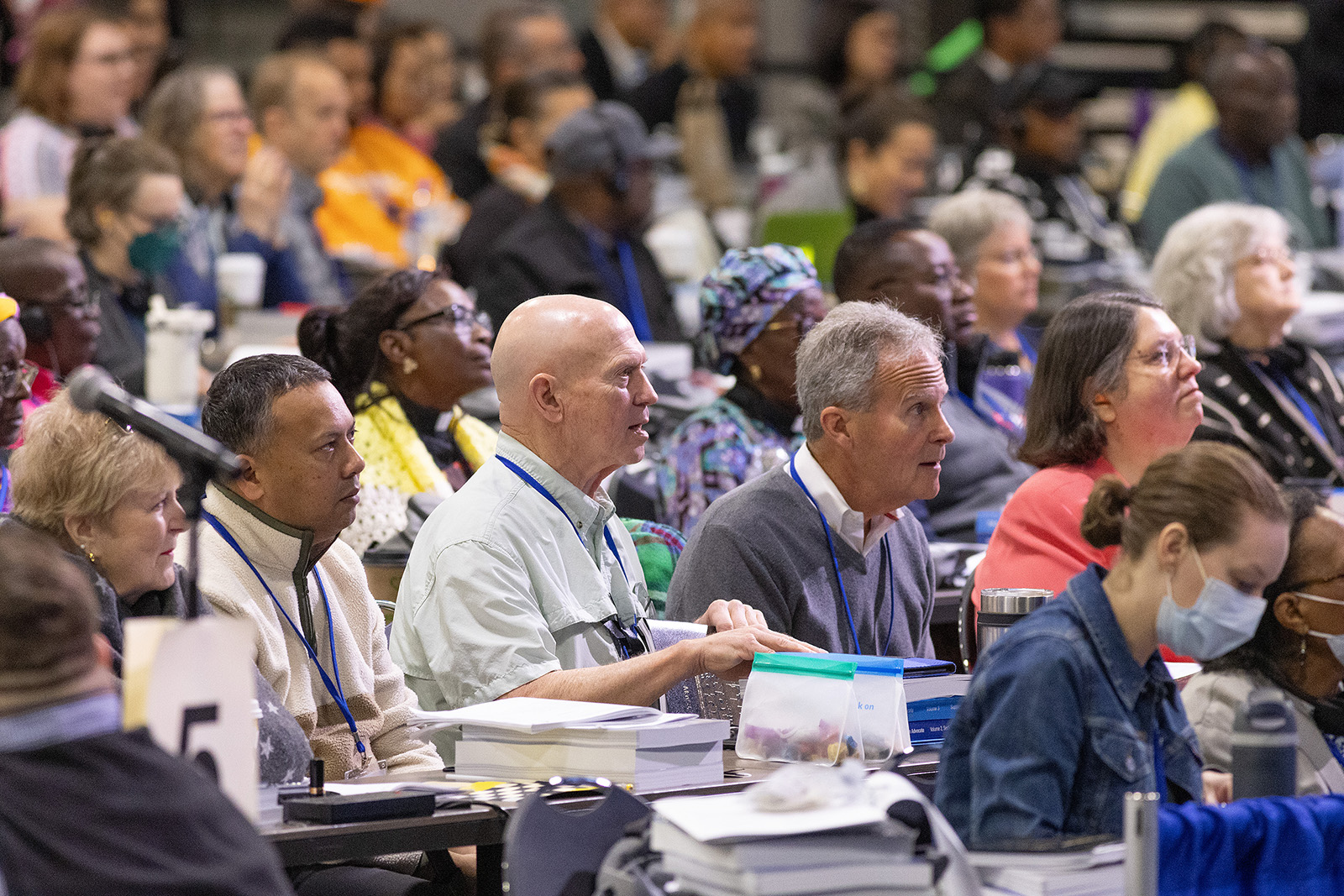Lent is here, and I am settling into the words of Ephesians 2:8—I was a sinner saved by grace. Each year in this season, this verse leads me into contemplation and contrition as I recognize my role in small troubles and great catastrophes. That time my temper got the best of me, a bit of gossip, wanting what is not mine, sins of omission I choose to air only to God.
I am less reflective, if at all, on my total and complete corruption as an inheritor of Adam’s sin. Karl Barth is right that “the reality of sin cannot be known or described except in relation to the One who has vanquished it.” I take my sinful condition seriously but with gratitude for its remedy. I’m also wary of the ways the church has used this doctrine to cudgel ordinary believers with shame and guilt. But this year, in the company of people in my congregation in long-term recovery from addiction, I’m sensing a new openness within me to the doctrine of original sin.
It’s complex and cautious work to talk about sin and addiction in the same breath. For longer than not, public opinion concluded that alcoholism was a sinful condition rooted in the laziest form of immorality. Drunks were bad people who wouldn’t muster the willpower to stop drinking. It wasn’t until 1956 that the American Medical Association diagnosed addiction as a mental illness characterized by compulsive decision-making with notable signs and patterns of recovery. With compassion and medical support rather than judgment and isolation, addicts began to recover.
But the therapeutic model doesn’t encapsulate the breadth of some people’s experience with substance abuse. Writer Ed Simon came to this conclusion as he reflected on the Alcoholics Anonymous tenet “we admit that we are powerless over alcohol.” Simon’s secular, rationalist worldview, which he says “serves me well in the majority of circumstances,” melted away as he was brought to his knees again and again by alcohol. “That powerlessness is as acute an experience of original sin as I’ve ever experienced, the knowledge that once I get that one drink I can’t stop till I’ve had all of them.”
The people in my church who are in recovery share similar stories. From them I’ve learned, as Rowan Williams writes, that sin is not a satanic rebellion or the enjoyable defiance of the rules but “the condition of being seriously wrong about reality and living against the grain.” Sinners are people who know the truth that something is wrong and that they’re caught up in it. People in recovery have lived close to this reality for a long time, and they aren’t afraid to say that truth aloud.
One place I’ve noticed this public truth telling is in our worship service. Each month our congregation publicly celebrates: one by one people stand and share their joy at a marriage anniversary or birthday, a new home or a new job. In the past five years, as our church has grown in the number of people in long-term recovery, I’ve named another kind of celebration: an anniversary of sobriety.
Early in my ministry, working at a church in North Philadelphia, I learned the term “downstairs church,” a moniker for the recovery communities that proliferate in church basements across the country. The church I served had labored to break the barrier between downstairs church and upstairs church—the Sunday worshiping community that often has little interaction with the addicts who gather the other six days of the week.
I learned from that church how to make recovery visible, removing the stigma of shame. I heard sermons and testimonies about addiction. We also publicly celebrated sobrieties, often accompanied by a shiny coin held proudly by its owner who announced a new milestone in their journey toward wholeness. We grieved relapses, and we cared for those who slipped back into patterns of harm. From church members in recovery, we learned the careful work of setting boundaries and holding one another accountable. Perhaps most importantly, we cultivated honesty.
In recovery meetings I was invited to attend, each participant introduced themselves around the circle, adding, “I’m an alcoholic.” These announcements of addiction remind me of a story from the Desert Mothers. A truth seeker came to the Amma confessing her frustration with daily temptations. Theodora encouraged the woman to face her temptations and talk to them, “as if they were Devils.”
“Yes,” the woman cried out, and she turned and said, “I can’t fast enough to get rid of you.” And they answered her: “We do not eat or drink.” And she said: “What if I stay up all night and pray the Vigil?” And they answered her: “We do not sleep.” And she cried out: “What power, then, sends you away?” And her Devils answered: “Nothing can overcome us, but only humility.”
Church members in recovery challenge me whenever my sin slips into therapeutic self-fulfillment or I try to muscle my way into holiness. Their witness puts flesh on Paul’s struggle with sin, the prison from which he cannot break free on his own (Rom. 7). They have taught me how, as Linda Mercadante writes, to uncouple “original sin” from “original guilt.” I have held near to me the conviction of alcoholics like Ed Simon, who, faced with the chasm of his disease, can say, “I’m grateful for all of it—that which reminds me I’m fallen, I’m a human.”
As I journey through Lent in a recovery-minded congregation, I will give thanks for the ways that we can name aloud together that something is wrong. I will remember how a few weeks ago Jeremy stood during prayer time. He’d noticed his drinking had increased following his mother’s death. Before our congregation he asked for help and care. I knew he could find it among us, a bunch of sinners, powerless before the intractable and vicious disorder of sin but already saved by grace.
Source link


